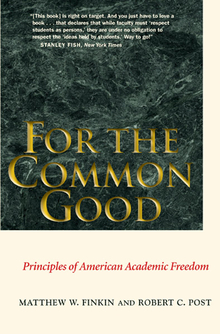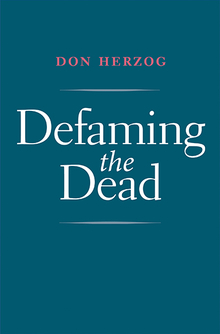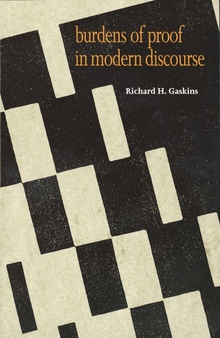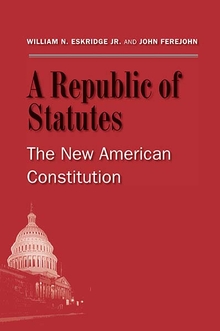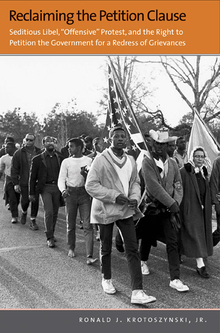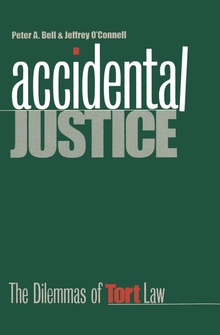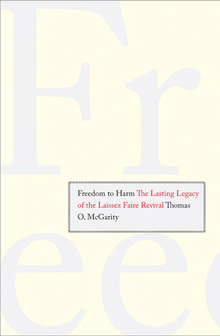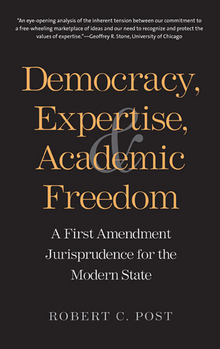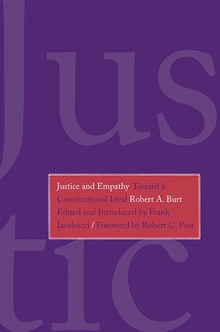For the Common Good
WARNING
You are viewing an older version of the Yalebooks website. Please visit out new website with more updated information and a better user experience: https://www.yalebooks.com
Principles of American Academic Freedom
Matthew W. Finkin and Robert C. Post
An exploration of the meaning of academic freedom in American higher education
Debates about academic freedom have become increasingly fierce and frequent. Legislative efforts to regulate American professors proliferate across the nation. Although most American scholars desire to protect academic freedom, they have only a vague and uncertain apprehension of its basic principles and structure. This book offers a concise explanation of the history and meaning of American academic freedom, and it attempts to intervene in contemporary debates by clarifying the fundamental functions and purposes of academic freedom in America.
Matthew W. Finkin and Robert C. Post trace how the American conception of academic freedom was first systematically articulated in 1915 by the American Association of University Professors (AAUP) and how this conception was in subsequent years elaborated and applied by Committee A of the AAUP. The authors discuss the four primary dimensions of academic freedom—research and publication, teaching, intramural speech, and extramural speech. They carefully distinguish academic freedom from the kind of individual free speech right that is created by the First Amendment. The authors strongly argue that academic freedom protects the capacity of faculty to pursue the scholar’s profession according to the standards of that profession.
Click here to read an interview with the authors on Inside Higher Ed
"There is no better corrective—or alternative—to the 'corporate' University than this courageous book that redefines the spirit of 'academic freedom' for our times. In recalling the principles of common law and the public good that underlie the ideals of academic freedom, Post and Finkin have held our scholarly profession to its highest standards, and saved us—as scholars and teachers—from the glib and glittering inducements of the intellectual market place."—Homi K. Bhabha, Anne F. Rothenberg Professor of the Humanities Department of English and American Literature and Language Director, Harvard Humanities Center, Harvard University
"[Finkin and Post] do a good job answering the question: Why does an enterprise dedicated to the production of new knowledge require academic freedom to achieve its disciplinary goals? (Note that this brackets the question of whether those goals should be valued and honored by the rest of the world.) . . . If you want to think seriously about academic freedom and you’re looking for a place to begin, this is the book for you."—Stanley Fish, Texas Law Review, Volume 88, Issue 1
Publication Date: September 6, 2011

